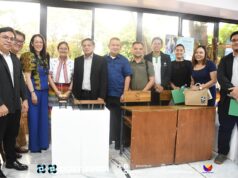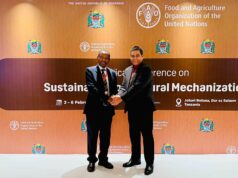SUBIC FREEPORT ZONE — “To spank or not to spank?” Most often, this is the predicament parents face in instilling discipline and imposing punishment on their children.
Over the weekend, a seminar on the proposed Positive and Non-Violent Discipline of Children Act was presented at the COMTEQ Computer and Business College here by the Philippine Legislators’ Committee on Population and Development Foundation, Inc. (PLCPD), PLAN International, and Save the Children Foundation, an NGO working to inspire breakthroughs in the way the world treats children and to achieve immediate and lasting change in their lives.
The seminar also defined the parameters for media covering children who are victims of crimes, calamities and personal tragedies; children witnesses as well as children in conflict with the law.
According to Wilma Banaga of Save the Children, studies and surveys show that parents in the Philippines discipline and punish their children through the use of corporal punishment such as spanking, pinching, hitting with an object, twisting the child’s ear, pulling the hair, slapping the face or rapping the head, shaking, or even confinement in a sack.
Filipino children also experience threats of physical punishment and humiliation such as being shouted at in front of others, labeling and denigration, she added.
Various researches show that corporal punishment is ineffective in disciplining children of all ages.
Most often it produces anger, resentment and low-self-esteem among children. It also teaches the child that violence is an acceptable behavior and is a solution to problems. This negative practice also perpetuates itself since children imitate what they see in adults.
Department of Social Welfare and Development (DSWD) representative Presentacion Pinaroc, social welfare officer 3 and focal person for community-based unit, confirmed the increasing number of children victims, children witnesses and those who are in conflict with the law.
Airah Cadiogan of PLAN International discussed the need to instill positive effects of local ordinances on anti-corporal punishment. She also touched on the importance of Republic Act 7610, the Special Protection Act of Children Against Child Abuse, Exploitation and Discrimination.
Joining the discussion was veteran newshen and Philippine Daily Inquirer Tarlac correspondent Jo Clemente, who presented the parameters on media coverage dealing with children especially victims of rape, incest and abuse.
She stressed the need to keep children’s faces and identities strictly confidential when reporting such cases for print or broadcast.
Today, House Bill 4455 or the Positive and Non-Violent Discipline of Children Act, was approved on third and final reading. A public hearing was held for its Senate counterpart bill last September.
The seminar, moderated by Dabet C. Panelo, Media Advocacy Officer for the Center for Advocacy and Policy Development of the PLCPD Foundation, Inc., was attended by elementary and high school public and private school teachers as well as members of the provincial chapters of the National Union of Journalists of the Philippines.




